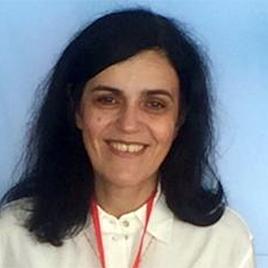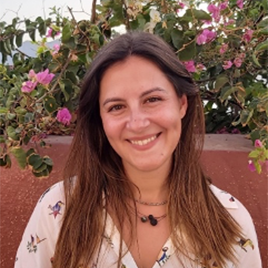More Information
- Language: 100% English
- 2 years | 120 ECTS
- Monday to Friday: from 2:30 p.m. to 7 p.m.
Program Description
The food sector is essential to ensure the quality and development of populations and societies.
The Portuguese food and beverage industry has demonstrated a notable capacity to project itself and explore growth opportunities in national and international markets, consistently increasing the value of exports, even during more challenging periods.
Investment in key industrial infrastructure must be accompanied by strong investment in people and knowledge. The training of competent professionals capable of intervening actively along the entire food chain is crucial to guarantee the production and supply of food in quantity and quality, and to respond to the demands of consumers who are increasingly aware of the urgent need for healthy and sustainable food.
Food Engineering is a scientific-technological, academic and professional area that interprets and applies principles of engineering and science to food production and operations, including the stages of processing, production, handling, storage, conservation, control, packaging and distribution of safe and efficient food globally. Given its reliance on food science, including microbiology, physics and chemistry, and on broader engineering areas such as electrical, mechanical, civil, chemical, industrial and agricultural engineering, food engineering is one of the most multidisciplinary engineering fields.
The ESB’s Master's in Food Engineering, is aimed at those interested in food and bioprocess engineering, risk assessment, process development and control, advanced production systems and associated environmental and social issues. This specialization leads graduates to various job opportunities in one of the most important sectors in Portugal and the European Union.
Graduates in food engineering from the ESB are equipped to:
- Have a solid understanding of the scientific basis of food industrial operations;
- Use methods to evaluate and control the safety and quality of food;
- Understand the effect of processes on food quality, and the impact of food on health (enginomics);
- Use modeling and simulation tools to predict and optimize products and processes (virtualization);
- Innovate in the food distribution chain, through a capacity for a holistic approach (open innovation) with social responsibility;
- Intervene in the design, planning, development and management of sustainable and innovative food systems, supporting the production of innovative, high-quality, safe, and nutritionally-balanced foods (Foodtech).
Recipients and Selection
Who can apply:
i) holders of a bachelor's degree or legal equivalent in the areas of Food Engineering or similar;
ii) holders of a bachelor's degree in other areas may be admitted, provided that a favorable opinion is issued by the Coordination Committee; and
iii) holders of a school, scientific or professional curriculum, recognized by the Scientific Council of the ESB-UCP as attesting to their ability to carry out this cycle of studies.
Coordination
Cristina L. M. Silva, Chemical Engineer and PhD in Biotechnology with a specialty in Food Science and Engineering, is an Associate Professor at the ESB, Deputy Director for Internationalization, and responsible for third-cycle studies. She teaches food technologies and transfer phenomena. She is responsible for the CBQF's “Food Processing Engineering” research laboratory. In 2022, she was distinguished internationally in the field of food engineering and technology, by being elected a Fellow of the International Academy of Food Science and Technology (IAFoST), the highest international recognition, for her contribution to the advancement and coordination of teaching in science and food engineering worldwide, and for her research work in the area of modeling and optimization of food processes.
Cristina Silva chairs the IUFoST (International Union of Food Science and Technology) education working group 1.2 on Emerging Issues, Main Focus Areas. She was also the founder, and leader for 9 years, of the ISEKI-Food network that included more than 150 higher education institutions in the field of food science and engineering, from more than 100 countries on every continent. She is currently a member of the advisory board of the ISEKI-Food International Association, editor-in-chief of the International Journal of Food Studies and associate editor of the Journal of Food Process Engineering, Brazilian Journal of Food Technology and Foods.
More Information
- Language: 100% English
- 2 years | 120 ECTS
- Monday to Friday: from 2:30 p.m. to 7 p.m.
Contacts
More Information
- Language: 100% English
- 2 years | 120 ECTS
- Monday to Friday: from 2:30 p.m. to 7 p.m.





